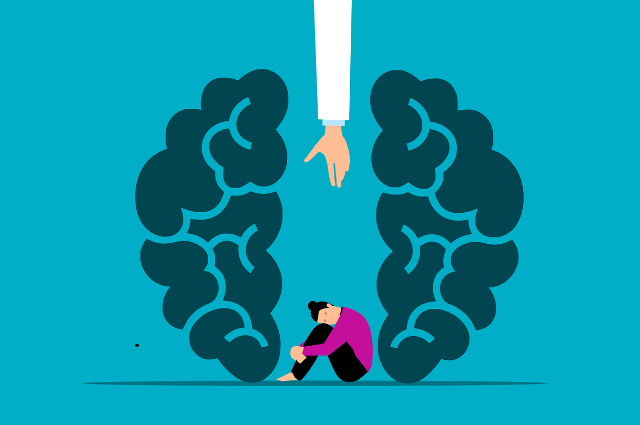
Image by Mohamed Hassan from Pixabay
Recent research from The Hospital for Sick Children (SickKids) has unveiled how stress deeply affects the way our brains process and recall negative memories. The study that was conducted by neuroscientists Dr. Sheena Josselyn and Paul Frankland, explores how stress changes memory formation and retrieval. It also introduces a promising approach to help people with post-traumatic stress disorder (PTSD) regain more precise memory recall.
Stressful experiences, particularly those tied to negative events can alter how our brains function. For example, if you fumble during a presentation, you may feel anxious the next time you have to present. This happens because your brain links the upcoming presentation to the earlier unpleasant experience. However, stress related to more severe events—such as violence or persistent anxiety—can create broader and more harmful effects. This phenomenon is called stress-induced aversive memory generalization which occurs when triggers like fireworks or loud noises evoke fear responses unrelated to the original event. For individuals with PTSD, this can severely disrupt daily life.
Stress and PTSD: The Challenge of Memory Generalization
Stress-induced memory generalization happens when the brain begins to associate unrelated stimuli with past traumatic experiences. For example, a person who experienced violence might feel overwhelming fear upon hearing a car backfire even though it poses no real danger. Such responses are not only distressing but can dominate daily activities by creating significant mental health challenges.
In PTSD, this issue becomes even more critical. People with PTSD often face heightened emotional responses as their brains struggle to differentiate between safe and threatening situations. This lack of "memory specificity" means their brains overgeneralize by turning neutral experiences into sources of stress and fear.
Groundbreaking Insights from SickKids Research
Published in Cell, the study by Dr. Josselyn and Frankland sheds light on the biological mechanisms that drive stress-induced memory generalization. Their work highlights how stress alters neural pathways, particularly in areas of the brain responsible for memory encoding and retrieval. Importantly, the researchers have identified a potential intervention to counteract these effects.
This intervention focuses on restoring proper memory specificity—helping the brain to distinguish between traumatic memories and unrelated i.e. non-threatening stimuli. If successful, this approach could significantly improve the quality of life for individuals with PTSD by enabling them to navigate daily life with fewer emotional disruptions.
Moving Towards Better Treatments
The findings from this study offer hope for those affected by PTSD and similar conditions. By targeting the root causes of stress-related memory issues, the research points to a future where therapies might not just manage signs but address the underlying problem. As this intervention is further developed and tested, it could pave the way for more effective treatments that help individuals regain control over their memories and their lives.
Understanding the impact of stress on memory is a crucial step towards improving mental health outcomes. With studies like this, science is offering a brighter path forward for those who struggle with the lasting effects of trauma.
Understanding the Impact of Stress on Memory Formation
In a significant study conducted by a research team at the University of Calgary Hotchkiss Brain Institute, alongside Dr. Matthew Hill, scientists have taken steps in understanding how stress affects memory. Their work focuses on the role of endocannabinoid receptors in interneurons which are specialized cells in the brain. By blocking these receptors, the researchers were able to limit the generalization of memories that arise from stress by ensuring that these memories remain tied to specific events rather than becoming overly broad and triggered by unrelated situations.
The Experiment: Creating Fearful Memories
To delve deeper into this phenomenon, the research team employed a preclinical model where they subjected test subjects to a brief but safe stressor before exposing them to an aversive event. This method aimed to create a non-specific fearful memory, similar to how post-traumatic stress disorder (PTSD) manifests in humans. In PTSD, individuals often experience fear responses triggered by safe situations that remind them of their traumatic experiences.
Investigating Memory Engrams
The researchers then focused on memory engrams, which are essentially the physical traces of memories stored in the brain. This concept has been developed through previous work by the Josselyn and Frankland labs at SickKids. Typically, these engrams consist of a small number of neurons. However, in this study, the stress-induced memory engrams were notably larger and involved a greater number of neurons than usual. This increase in size led to generalized fearful memories that could be activated even when the subjects were in safe environments.
The Role of Endocannabinoids
Upon further investigation, the study revealed that stress triggered an increase in the release of endocannabinoids—naturally occurring compounds in the body that bind to cannabinoid receptors. This surge interfered with the normal functioning of interneurons which are responsible for regulating the size of memory engrams. When these interneurons are disrupted, it results in larger engrams and consequently more generalized memories that can lead to inappropriate fear responses.
This research sheds light on how stress can alter memory formation and retrieval processes. By understanding these mechanisms, scientists hope to develop better strategies for addressing conditions like PTSD and other anxiety disorders where fear responses are often misaligned with actual threats.
Exploring the Connection Between Stress, Memory, and Happiness
Recent research is shedding light on the complex relationship between stress, memory formation, and the potential impact of daily stressors on our joyful experiences. As scientists delve deeper into this unexpected connection, they are uncovering how variations in memory engram size—triggered by stress—can influence our emotional responses throughout life.
The ongoing studies focus on how stress alters the way our brains encode and retrieve memories. Researchers have found that stress can lead to the creation of generalized fearful memories, which can be triggered even in safe environments. This phenomenon is particularly relevant for understanding conditions like post-traumatic stress disorder (PTSD), where individuals often respond with fear to non-threatening situations.
. . .
References:
